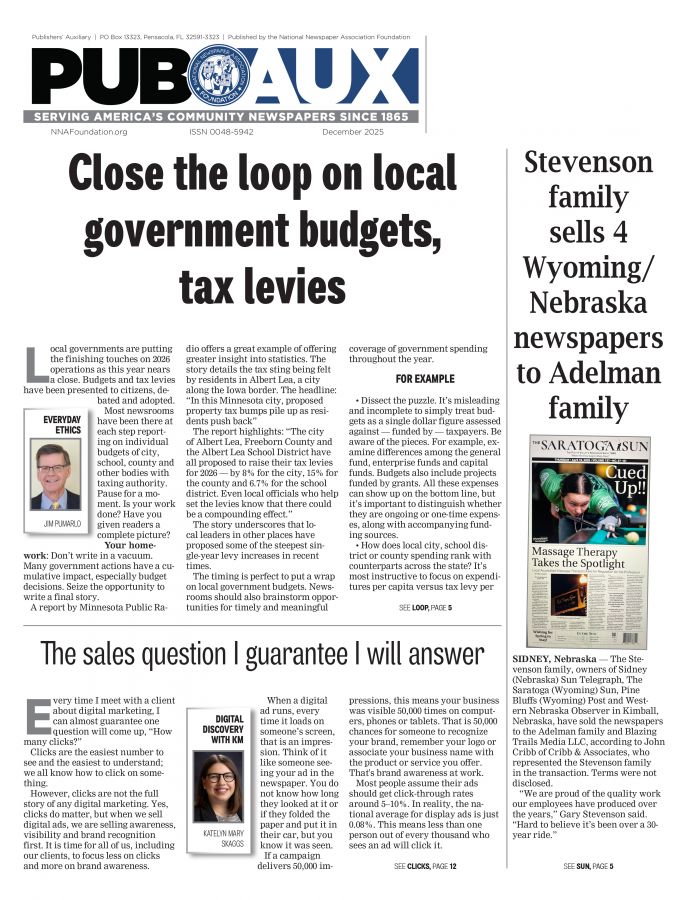National security and privacy rights face off over NSA allegations
Jul 15, 2014
By Joe Adgie
NNAF News Fellow | Valdosta University
It can be argued that there are two prevailing schools of thought about the National Security Agency, one of the most controversial and most polarizing organizations in America, if not the entire planet.
One school of thought believes that the work by the NSA is supremely vital to U.S. national security interests. The other school of thought takes a dim view of the NSA’s surveillance methods.
The constitutionality of the agency’s actions is a non-issue, according to the supporters of the NSA, as it, along with virtually every other governmental organization, is being checked constantly to make sure its actions are within proper constitutional bounds. Maybe even more so, considering the press that the actions of the NSA have received during the past year.
A source within the NSA said he takes the constitutionality of the NSA’s actions so seriously that he keeps a copy of the Constitution in his pocket at all times.
NSA technical director for public affairs, Bill Combs, helped to explain the argument in favor of NSA’s work.
“It’s NSA’s job to give our elected leaders, our military folks, our partners in the intelligence community and the defense department the information advantage, and that is to know what those bad guys are doing ahead of time, and then also do all we can to protect our own secrets,” Combs said. “That’s known as the information advantage. Knowing what the bad guys are going to do, knowing what the adversaries are going to do, and keeping your own secrets. That’s what NSA does.”
Combs said the NSA is only interested in those “bad guys,” and not U.S. citizens. The only real way for a U.S. citizen to get noticed by the NSA would be for that citizen to keep regular contact with a known “bad guy.”
“We are targeting that terrorist,” Combs said. “And when folks talk about an American getting caught up in all that stuff, you probably shouldn’t be talking to a terrorist every day. And chances are, 99.999 percent of Americans aren’t talking to terrorists every day, so guess what? We don’t care. We are listening to the bad things from bad guys overseas.”
U.S. citizens, said Combs, are actually “untouchable” from NSA surveillance, no matter where they are.
“I don’t care if you’re vacationing in Iran, why the hell you’re doing that I don’t know, that’s your own decision, I’m not listening to that. You’re an American citizen.”
Sen. Johnny Isakson, R-GA, follows that same school of thought. In support of the NSA, Isakson discussed the ability to tap into phones belonging to known terrorists, just like those that were responsible for the attacks Sept. 11, 2001.
“If I become a suspect, [for] whatever reason and whatever intelligence, as a known terrorist, and I have a cell phone, and I’m communicating as a known terrorist with people in the United States or in Islamabad, Pakistan, and that becomes our knowledge, if the NSA is not able to instantaneously track that phone, then they may lose it, and they lose the intelligence they get from it,” Isakson said. “For example, on Sept. 11, 2001, all 19 of the hijackers communicated with Osama Bin Laden and the cells communicated, one to each other. It was cellular technology that allowed guys in the cave in Tora Bora to bring down U.S. airliners and bring this country to the brink of a terrible terrorist attack.”
Isakson remarked that the NSA cannot, without a warrant, “go tap in anyone’s phone, but if they have reason to believe it’s a known terrorist, and they have reason to believe there’s imminent danger, they can begin the tap and immediately go to the FISA court for the warrant.”
Isakson was referring to the Foreign Intelligence Surveillance Court, which may issue warrants for NSA’s wiretapping methods. The NSA is required to obtain such warrants for its surveillance.
Another school of thought does not necessarily agree with the views of Isakson and Combs.
Tom Blanton, director of the National Security Archive, located at George Washington University, said that the discussion concerning wiretapping of U.S. citizens is hardly anything new, and has flared up for decades, notably in the mid-1970s, when it was revealed that the NSA had tapped phones belonging to Martin Luther King, Jr. Blanton noted that he believes, the NSA still places taps on American citizens, even if it won’t admit it.
“We did a summary as of September called the Snowden Affair,” Blanton said. “It puts the Snowden revelations side-by-side with some of the public statements made by people such as [James Clapper, current director of National Intelligence] and [Gen. Keith Alexander, former NSA director], and some of what they’ve said in public testimony or to the wiretap court or to other federal courts.”
When put side-by-side with the Snowden leaks, he explained, Alexander and Clapper’s statements were exposed as “a bodyguard of lies.”
“When the director of national intelligence says directly to the camera, ‘No, we’re not collecting on hundreds of millions of Americans,’ he’s lying,” Blanton said. “And he knows he’s lying. And what’s worse is the senators who are listening to him know he’s lying, yet they’re all gagged by their security clearances from actually saying so. So the senators know, and Clapper knows, but you and I don’t. And that’s a huge problem, I think, for our constitutional democracy.”
A look at the Snowden Affair will find what Blanton is talking about—specifically, a situation where, last March, Clapper was asked by Sen. Ron Wyden, D-OR, if the NSA collected “any type of data at all on millions or hundreds of millions of Americans.”
“No, sir,” Clapper replied. “Not wittingly.”
In a letter addressed to Sen. Dianne Feinstein, D-CA, that June, Clapper explained that he “realized later” that Wyden’s question was actually about metadata collection, and stated that his answer had been erroneous.
The metadata collection, known as the “215 program,” refers to section 215 of the USA PATRIOT Act, and it collects the basic information of a phone call—who made the call to whom, where the call was made, where the call was answered, how long the call was, and when the call was made. The metadata does not involve the actual contents of the phone call.
It appears that the American public might think along the same lines as Blanton. A YouGov/Economist poll at the start of the year reported that 62 percent of those polled thought the metadata collection was an “unnecessary intrusion into Americans’ lives,” although 60 percent in total disapproved in some way or another about the collection of these phone records. Also, 54 percent thought the metadata collection was unlikely in some form to have prevented a terrorist attack since 2007, when the collection started.
Regardless of what data is actually collected by the NSA, Blanton had some thoughts for what this should do for American citizens.
“It should be a wake-up call for all of us, about the online reality, and about our digital footprints.”







